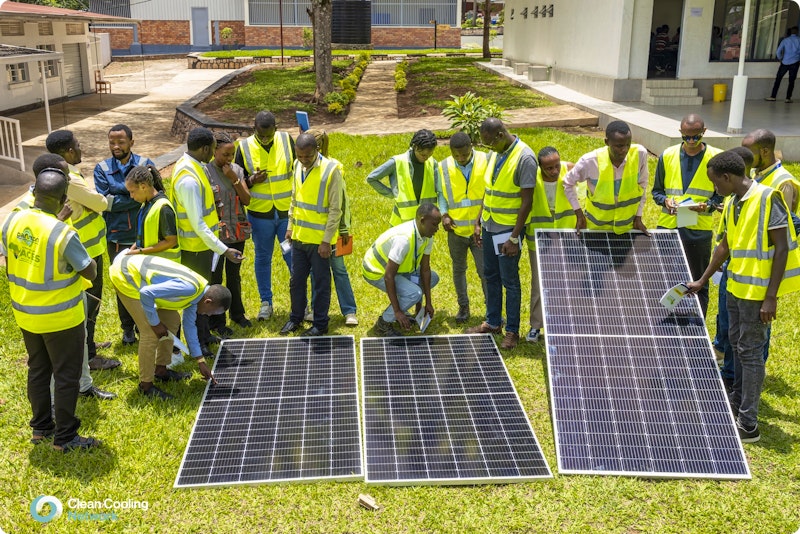
We know what we should do when someone brings a bottle of milk home from the shop: put it straight into the fridge. But what happens if there is no fridge?
Without refrigeration, milk must be boiled right away. And if it’s not going to be used soon, you’ll likely boil it again and again just to keep it safe. Now imagine trying the same trick with tomatoes, spinach, mangoes, yogurt or fish. You can’t boil a tomato to keep it fresh. You can’t re-fry your leafy greens every 8 hours. And hopefully you are not thinking about boiling that yogurt! That’s where the cold-chain comes in.
The cold-chain is the “invisible highway” that keeps food fresh, medicines safe, and economies thriving. It is one of the most important systems working in the background to support billions of lives daily, yet many of us have never heard of it.
Why it matters for schools
Bringing cold-chain awareness into schools is about more than just teaching science. It’s about linking lessons to the food we eat, the vaccines we take, and the changing climate that we live in. It prepares the next generation of thinkers, builders, problem-solvers and entrepreneurs for challenges that connect health, hunger, weather, trade and commerce.
What’s in it for schools at the Festival of Cooling?
At Rwanda’s Festival of Cooling, running October 6th – 10th 2025, schools will have a dedicated opportunity on the morning of October 8th to explore the cold-chain in ways that go far beyond the classroom. Surprises will be the essence of the day, but without giving too much away, here are a few highlights students, teachers and lecturers alike can look forward to encountering:
- Hands-on challenges where you power a cooling system yourself and see the results instantly.
- Experiments that turn everyday science into surprising outcomes. Imagine things steaming, shrinking, freezing, or fizzing before your eyes. Also, imagine something freezing from room temperature in less than a minute. Is it magic or science?
- Competitions that mix science with storytelling and creativity.
- Guided tours that let you walk through real cooling systems and meet the people who invent, build, run and look after them.
- Networking corners where teachers and lecturers can connect with researchers, innovators, and industry specialists to build projects, internships, and career pathways for students.
It’s a chance to step into a space where science feels alive in a fun way, where you can touch it, test it, and see how it shapes the world around you. And it’s an opportunity to bring fresh, practical ideas back into the classroom.
Register now for your place at the Festival of Cooling on 8th October 2025.
Did you know?
- Around 37% of food in sub-Saharan Africa is spoiled and lost before it reaches the consumer, much of it because there’s no cold-chain to keep it cool.
- Cooling can run on solar power, making it clean and ideal for areas with no electricity or a limited or unreliable supply.
- The cold-chain was at the centre of helping Rwanda fight the Marburg virus in 2024.
- Without the cold-chains, patients would have had to fly to the USA to access the Marburg vaccine. Imagine the cost, not just in money, but also in time spent urgently arranging flights to save lives.
“At school, science lived in my notebook: neat diagrams, tidy equations, long texts of explanations,” recalls Gideon Mulungi, a cooling and cold-chains researcher at London South Bank University. “Though part of our daily lives, cooling was something we only theorised about a couple of times in my schooling journey. It wasn’t until years later, after I had finished school, that someone opened my eyes to its true role in food security, health, and livelihoods. Once I saw the bigger picture, I couldn’t unsee it, and I couldn’t stop thinking how different my path might have been if I’d learned it earlier. It will be unfair of the older generations if the younger generation also has to wait until after school to have that realisation."
Why start now
In places where food insecurity, youth unemployment, and climate vulnerability are everyday realities, we can’t afford to wait until after learners’ graduate from university to introduce them to the concept of cold-chains. Every year we delay is a year of missed opportunities, missed inventions, missed solutions, and missed careers that could help transform communities, increasing their health and economic well-being whilst building resilience to higher temperatures and other climate change related shocks.
By bringing cold-chain and clean cooling concepts into schools and universities now, we are not just adding another subject to the timetable; we are planting seeds of resilience, innovation, and empowerment. At the Festival of Cooling, those seeds will have a chance to be sown as students see, touch, and test ideas that could shape their futures. Imagine, the next time a student steps into an agriculture, physics, or commerce lesson, they might not just be preparing for an exam, they might be preparing to solve some of the world’s coolest challenges. And it could be something they saw, tried, or visualised at the Festival of Cooling that sets them on that path.